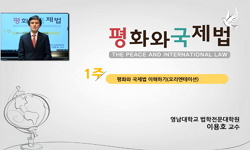헨리키신저는 “이집트 없이 전쟁없고 시리아 없이 평화없다”라는 말을 남긴 적이 있는데 그만큼 이집트의 지정학적, 군사안보적 중요성은 크다. ‘7000년 역사의 20대 젊은 나라’ 이집트...
http://chineseinput.net/에서 pinyin(병음)방식으로 중국어를 변환할 수 있습니다.
변환된 중국어를 복사하여 사용하시면 됩니다.
- 中文 을 입력하시려면 zhongwen을 입력하시고 space를누르시면됩니다.
- 北京 을 입력하시려면 beijing을 입력하시고 space를 누르시면 됩니다.
https://www.riss.kr/link?id=A108713760
- 저자
- 발행기관
- 학술지명
- 권호사항
-
발행연도
2023
-
작성언어
-
- 주제어
-
자료형태
학술저널
-
수록면
204-217(14쪽)
- 제공처
-
0
상세조회 -
0
다운로드
부가정보
국문 초록 (Abstract)
헨리키신저는 “이집트 없이 전쟁없고 시리아 없이 평화없다”라는 말을 남긴 적이 있는데 그만큼 이집트의 지정학적, 군사안보적 중요성은 크다.
‘7000년 역사의 20대 젊은 나라’ 이집트는 ▲1억2천만 명의 아랍 최대의 인구대국, ▲중동·아프리카 평화와 안정의 린치핀, ▲세계 핵심 물류 조임목(choke-point)인 수에즈 운하 보유국, ▲아랍문화·정신세계의 허브로서 아랍연맹(22개국)의 좌장국인 바, 우리 정부의 경제안보, 글로벌중추국가 외교 실현 측면에서도 반드시 함께 해야 할 소중한 우방국이다.
아랍사람들은 싸움이 났을 때 ‘와스타(아랍어: 중재자)’를 먼저 찾는데 그 와스타 역할을 하는 사람을 헤게모니 보유자로 생각하는 문화가 있다. 현재 이집트는 한동안 사우디, UAE, 카타르 등 걸프산유국에게 주도권을 빼앗겼던 ‘와스타’ 역할을 되찾아 오고자 이·팔분쟁, 리비아내전, 시리아의 아랍연맹 복귀 및 최근의 수단 내 군부충돌 등 주변국 분쟁에 적극적인 중재자 역할을 자임해 오고 있다.
중동정세 및 질서 재편에 관한 충격파는 지중해에서 형성되고, 홍해(이집트, 수단, 밥엘 만데브 해협 등)를 거쳐 걸프로 파급된다는 말이 있는데, 홍해 일대는 신중동질서 재편 움직임과 맞물려 르네상스댐 분쟁, 수단내전, 아덴만, 아프리카의 뿔 지역에서의 각축전 등 4개의 발화점(flash-points)을 가진 곳이므로 향후 이곳에 우리의 관심 및 외교자원을 보다 전략적으로 투여할 필요가 있다.
금년은 카이로선언(1943) 80주년, 한국기업의 중동진출 50주년(1973∼2023)이 되는 해로 걸프를 넘는 ‘신중동정책’을 윤석렬 정부의 외교브랜드로 채택, 발전시켜 나가는 것도 매우 시의적절하다고 본다.
대중동외교는 ‘체스보다는 바둑’이다. 1개의 왕만 잡으면 이기는 체스보다는 중동국가들을 구석구석 찾아 다니며 ‘집’을 하나라도 더 만들어야 이기는 바둑 정신이 더 유용하다. 홍해 건너 이집트는 놓쳐서는 안 될 대마(大馬)임이 분명하다.
다국어 초록 (Multilingual Abstract)
Henry Kissinger once said, “You cannot make war in the Middle East without Egypt and you cannot make peace without Syria”. This statement reflects the geopolitical significance and influence of Egypt in the Middle East and beyond. Egypt, dubbed as...
Henry Kissinger once said, “You cannot make war in the Middle East without Egypt and you cannot make peace without Syria”. This statement reflects the geopolitical significance and influence of Egypt in the Middle East and beyond.
Egypt, dubbed as “A young nation in her 20s with a history of 7,000 years”, is the largest Arab country with a population of 120 million. It serves as a linchpin for peace and stability in the Middle East and Africa as well as owning the Suez Canal which could be regarded as the strategic choke-point of world economy and logistics. In addition, Egypt is the cultural hub of the Arab world, hosting the Secretariat office of the Arab League (comprising 22 countries) in Cairo. Considering all this makes Egypt a valuable partner of Korea in its pursuit for the diplomatic strategy of the Global Pivotal State(GPS).
Arab people have a tendency to seek a Wasta (Arabic: mediator) when conflicts arise. Their culture considers the person playing the role of a mediator as a holder of hegemony. Currently, Egypt is actively assuming the role of a mediator in the regional conflicts, aiming to regain the Wasta position that was taken away by oil-producing Gulf countries such as Saudi Arabia, UAE, and Qatar for some time. Egypt has been also actively engaging in mediating roles in various conflicts such as the Israel-Palestine conflict, the Libyan Civil War, the return of Syria to the Arab League, and recent military clashes in Sudan.
There is a saying that shock waves regarding the Middle East situation and the reshuffle of its order are formed in the Mediterranean and ripple through the Red Sea (including Egypt, Sudan, Bab el-Mandeb Strait) towards the Gulf. There could be four flashpoints which may trigger a broader conflicts among the nations, especially in the Red Sea region. The four flashpoints are: ▲the Renaissance Dam(GERD) dispute, ▲the Armed collision in Sudan, ▲the Strait of Bab El-Mandeb ▲the Horn of Africa. In this vein, it is necessary for us to pay closer attention and allocate our diplomatic resources to this region from now on.
This year marks the 80th anniversary of the Cairo Declaration (1943) and the 50th anniversary of Korean companies’ starting business in the Middle East (1973-2023). It is very right time to consider and adopt a sort of “New Middle East Policy” that extends beyond the Gulf as a diplomatic brand of the new Administration of Korea.
Diplomacy in the Middle East fits a game of GO (“Baduk”) than CHESS. It is more insightful to apply the concept of Go-game to create houses as many as possible in every corner of the Middle Eastern region, while the winner of CHESS is decided by capturing only one king. All in all, Egypt is a crucial player, so-called “too-big-to-fail” that cannot be overlooked by the Korean diplomacy, especially in the Middle East region.
동일학술지(권/호) 다른 논문
-
에르도안 대통령의 튀르키예 - 20년의 통치 궤적과 국민적 선택 -
- 한국외교협회
- 조윤수 ( Cho Yun-soo )
- 2023
-
- 한국외교협회
- 김수완 ( Kim Su-wan )
- 2023
-
러시아의 우크라이나 침공 이후 중동지역의 에너지외교 전략 변화와 우리의 대응
- 한국외교협회
- 이성규 ( Lee Sung-kyu )
- 2023
-
- 한국외교협회
- 정기종 ( Chung Kee-jong )
- 2023




 KISS
KISS






